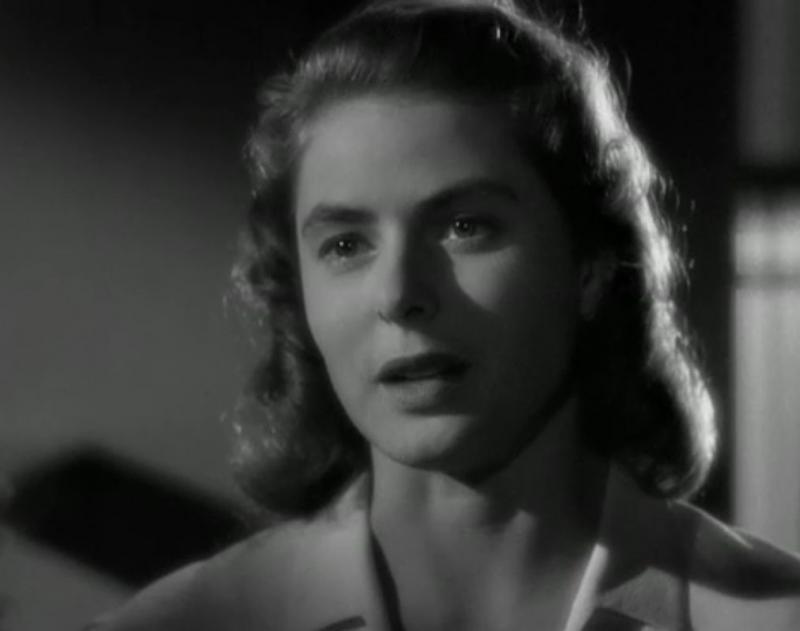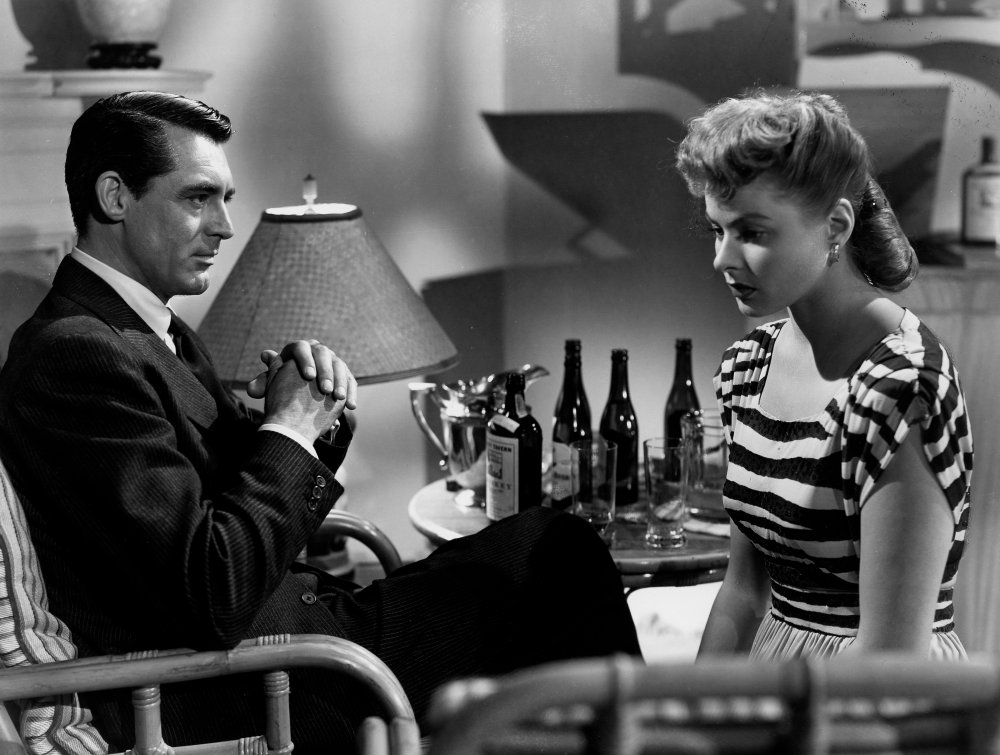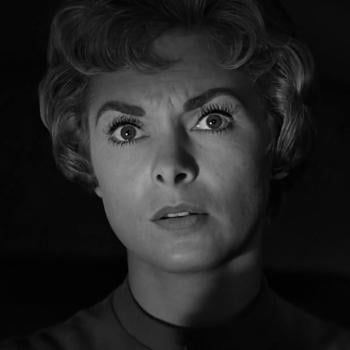
I mentioned in my piece on Rust and Bone that one of the hidden graces of film, and storytelling in general, is that it allows us to see others as God sees them. This is true even of characters that we might deem “ungodly” on first glance, like the daughter of a Nazi traitor.
Alfred Hitchcock’s 1946 film, Notorious, follows Alicia Huberman, a woman fallen from grace after her father is convicted as a Nazi traitor. After her father’s trial, she is contacted by government agent, TR Devlin, who offers Alicia a chance to clear her reputation. If she can perform a service for her country, she may at long last be free of the chains inherited from her father. The trouble is her assignment is to seduce a high-ranking Nazi. The intent is to extract information, but completing the mission asks her to play into everyone’s worst assumptions about her–the assumption that she is a slut who sleeps with Nazis. Even the budding romance between her and Devlin is not enough to convince him of her virtue.
Her father has already been sentenced. Now it’s Alicia that’s on trial.

Notorious has long been my favorite Hitchcock film, and Alicia has long been one of my favorite film characters. I documented on my other blog that her character reveals a lot about how we define female strength on screen. Alicia’s story is inspiring for the same reason it is excruciating. Even as no one believes in her, including the man who claims to love her, Alicia continually chooses to play the role of hero. The efficacy with which Alicia performs her task ought to earn her recognition and praise from Devlin, but it only confirms to him that she was always this creature of sin.
“Well, you never believed in me anyways,” Alicia says to Devlin. “So what’s the difference?”
He returns, “It’s lucky for both of us that I didn’t. It wouldn’t have been pretty if I’d believed in you. If I’d figured, she’ll never be able to go through with it, she’s been made over by love.”

It’s a lonely avenue for a woman who has done nothing wrong but decline to turn in her father to the authorities. But something happens to Alicia as she lives in a refiner’s fire–and to us as we witness her inner strength reveal itself. Through her courage and commitment, Alicia ultimately discovers what these underground Nazis are plotting, and her heroism shines through the doubts and aspersions thrown so thoughtlessly at her.
Even though Alicia’s game of espionage places her in danger, the real tension comes from whether society at large, and Devlin specifically, will ever move past their judgments of Alicia. Perhaps many of us have been viewed unfavorably in the court of public opinion and been subjected to undue condemnation. I think we can take comfort that even Christ himself was treated as an outcast in his time. As for the rest of us, maybe we can learn from Alicia’s story that just become someone is “notorious,” that doesn’t mean they deserve our disdain.
Whatever our own history, and however society views us, heroism is available to each of us.













